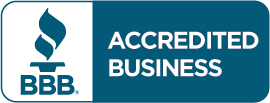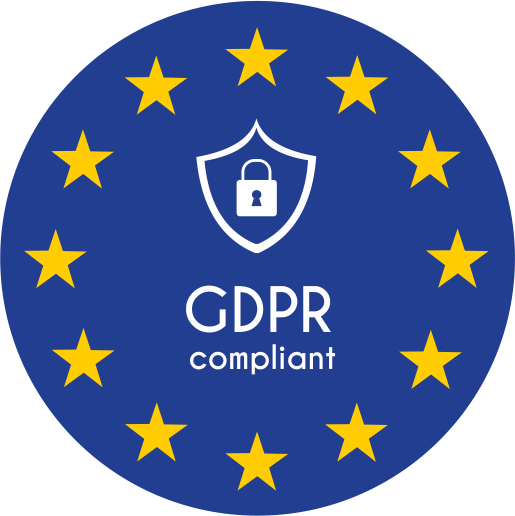
Small business owners face a minefield of sophisticated scams targeting their online presence. These fraudulent schemes don't just waste money: they can compromise your security and damage customer trust.
The scammers know you're busy running your business. They exploit that by making urgent-sounding offers or threats that demand immediate action. Don't fall for it.
Here are the 10 most common web hosting and SEO scams targeting small businesses right now, plus how to spot and avoid them.
1. The "Guaranteed Page 1 Rankings" Trap
This is the granddaddy of SEO scams. You'll get emails promising guaranteed first-page Google rankings, often within 30 days or less.
Here's the truth: No legitimate SEO professional can guarantee specific rankings. Google's algorithm changes constantly, and rankings depend on hundreds of factors including your competition.
Even Google itself can't predict which pages will rank where or when. Anyone making guarantees is either lying or using black-hat techniques that will eventually hurt your website.
Red flags to watch for:
- "Guaranteed #1 ranking"
- Specific timeline promises
- Vague descriptions of their methods
- Pressure to sign up immediately
2. Fake Google Lighthouse Speed Reports
You receive an official-looking email claiming they've tested your website speed using Google Lighthouse. The attached report shows terrible loading times that are supposedly hurting your rankings.
The catch? They never actually tested your website. The speed scores are completely fabricated to scare you into buying their services.
You can verify your real website speed using Google's PageSpeed Insights tool for free. Don't trust unsolicited speed reports from unknown senders.

3. Fraudulent Hosting Renewal Invoices
This scam arrives as convincing emails or even physical mail claiming your web hosting is about to expire. The fake invoice includes urgent language like "act immediately" or "don't lose your website."
The payment links lead to scammer-controlled sites where they steal your payment information.
Before paying any hosting renewal:
- Check the sender's email against previous legitimate communications
- Log into your hosting account directly (don't click email links)
- Verify the services and amounts match your actual account
- Contact your hosting provider using their official support channels
4. Domain Registry Renewal Scams
These official-looking notices claim you need to renew your domain registration. Sometimes they impersonate legitimate registrars or even the Better Business Bureau.
The scammers bill you for renewals you've already paid for or services you don't need. As we've covered in our previous article about internet scams and domain renewals, these can be particularly convincing.
Always verify domain renewal notices directly with your actual registrar. Check your records to confirm whether renewal is actually due.
5. Negative SEO Threats and Extortion
Some scammers demand ongoing payments for SEO services. They threaten that if you stop paying, they'll use "negative SEO" tactics to destroy your rankings.
This is extortion, plain and simple. Legitimate SEO consultants never make unsolicited payment demands or threaten consequences for refusing their services.
If someone threatens to harm your website's rankings, report them and block all communications. Don't give in to extortion attempts.
6. Directory Listing and Advertising Scams
You get calls or emails requesting payment to list your business in directories that sound legitimate: like Yellow Pages or Better Business Bureau directories.
The problem? You never authorized these listings, and the "directories" are often fake or worthless.
Before paying any directory fees:
- Check your records to confirm you placed an ad
- Contact the directory directly using verified contact information
- Be especially suspicious of cold calls demanding immediate payment
7. Tech Support Pop-up and Phone Scams
Tech support scams appear as computer pop-ups, emails, or phone calls claiming your website has malware or security issues requiring immediate attention.
These scams can be devastating. Scammers often request remote access to your computers or hosting accounts, leading to hacked accounts, stolen customer data, and compromised systems.
Protect yourself by:
- Using pop-up and ad blockers
- Installing legitimate security software on all devices
- Never giving remote access to unsolicited tech support
- Working with trusted IT professionals instead

8. Unrealistic Traffic and Visitor Promises
Scammers promise you'll receive 1,000+ visitors per day to your website or guaranteed traffic through paid advertising. These promises sound appealing but rarely deliver real results.
Legitimate web traffic takes time to build through quality content, good SEO practices, and targeted marketing. Be skeptical of anyone promising massive traffic increases overnight.
Real traffic growth strategies focus on:
- Creating valuable content for your audience
- Optimizing for relevant keywords
- Building quality backlinks over time
- Running targeted advertising campaigns
9. Fake Email Security Alerts
You receive urgent emails claiming your business email has security issues or will be suspended unless you take immediate action. These often impersonate your hosting provider or email service.
As we discuss in our email security guide, legitimate providers rarely send urgent security warnings via email. They typically notify you through your account dashboard or official support channels.
Always log into your accounts directly to verify any security concerns. Don't click links in suspicious emails.
10. Domain Appraisal and Purchase Scams
Scammers send unsolicited offers to appraise your domain name, suggesting it has significant value and you should sell it. They may claim to represent interested buyers.
These scams aim to extract personal information or payment for fake appraisal services. Sometimes they're fishing expeditions to identify valuable domains they can try to steal or squat.
Ignore unsolicited domain appraisal offers. If you're genuinely interested in your domain's value, use legitimate appraisal services or consult with a professional.
How to Protect Your Business
Verify Everything
Never trust urgent communications about your web hosting, domains, or SEO. Always verify through official channels using contact information from your service provider's website: not the suspicious communication.
Implement Email Authentication
Protect your email domain with SPF (Sender Policy Framework), DKIM (DomainKeys Identified Mail), and DMARC (Domain-based Message Authentication, Reporting, and Conformance). These technologies prevent scammers from impersonating your business email.
Educate Your Team
Make sure everyone on your team knows about these common scams. Establish protocols for verifying unexpected payment requests or service offers.
Use Reputable Providers
Work with established, reputable hosting providers and SEO professionals. Check references and reviews before committing to any services.
Trust Your Instincts
If something feels too good to be true or creates artificial urgency, it probably is a scam. Take time to research and verify before making decisions about your online presence.
Remember, protecting your business from these scams isn't just about avoiding financial loss. It's about maintaining the security and trust that your customers depend on. When in doubt, reach out to trusted professionals who can help you navigate these waters safely.
Stay vigilant, verify everything, and don't let scammers pressure you into hasty decisions about your business's digital presence.



 European Union General Data Protection Regulation Compliant
European Union General Data Protection Regulation Compliant